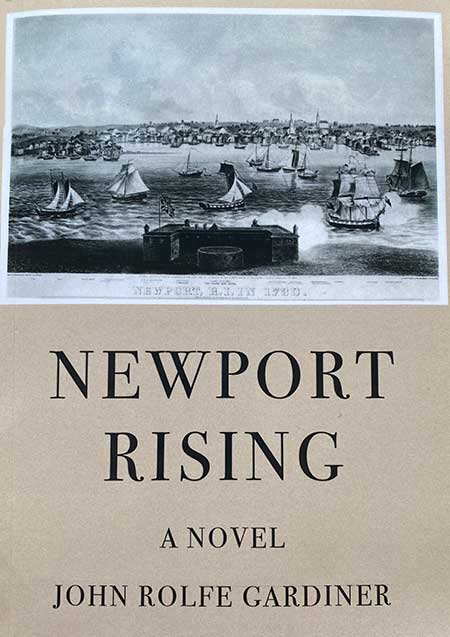
Newport Rising
Eighteenth Century Newport, Rhode island called “the most prosperous place in all America,” was home to the finest craftsmanship on the Atlantic coast, and nest of a thriving slave trade. This is the setting of the new novel, Newport Rising, the story of a trouble-prone journeyman printer and his aggravating lady friend, who roil the pre-Revolutionary town, where patriots might shoot him, or Royalists send him to England to hang.

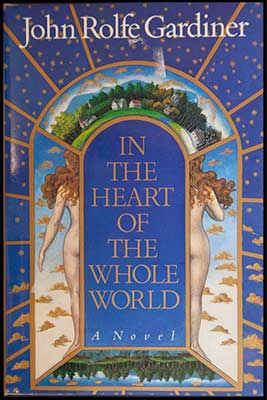
The Whole World of the title is a Northern Virginia mall akin to Tyson’s Corner, magnetic center of this novel set in a countryside transformed from farmland to a grand citadel of retail. With 1980s mall culture as backdrop, Ray Sykes, a well-favored young high school teacher’s affair with a precocious student, leads to her pregnancy. Soon rejecting him, she marries a classmate who believes himself father of her child. Devastated, Sykes must follow the development of his daughter from afar as she matures and enrolls in the same school her mother attended, and where, years later, he still teaches. Her astonishing behavior is far more dangerous than she knows.

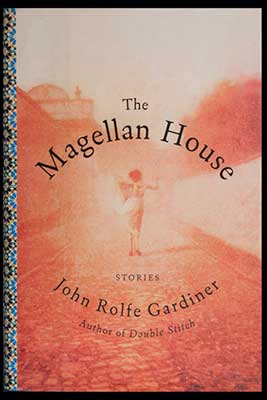
A collection widely divergent in place, theme, and time, these stories take the reader from the U.S. to Canada, Portugal, England, Norway and France. The book includes pieces that appeared in Best American Short Stories, The O Henry Prize collection, and The Pushcart Prize stories. They were originally published in the New Yorker, American Short Fiction, The American Scholar, Oxford American, and Ontario Review. See review of The Magellan House in the Hudson Review.(“Swimming Lessons” Winter, 2005).

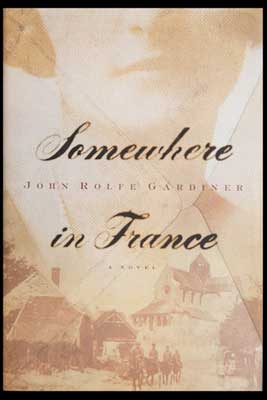
Somewhere in France is informed by letters sent home by the author’s grandfather while in his prep school in the 1880s and from the hospital he directed as a doctor in France in World War I. Not a story of battlefields, rather of early 20th Century military medicine practiced behind the lines against infections and killing fevers. Miranda Seymour in the New York Times called it “wonderfully mysterious and powerful, a book worth celebrating, capturing the precise moment when the world changed from old to new.”

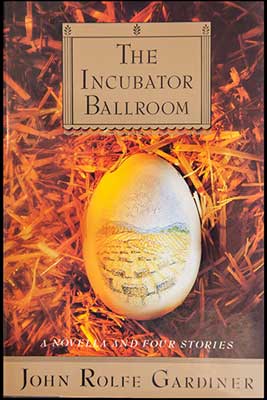
A collection set in Northern Virginia where the landscape itself is a motive force shaping lives
as it morphs from farmland into real estate. In the title novella an intellectual father moves his
family from Roanoke society to this shifting world, thinking to prove himself as a farmer. His youngest daughter Grace takes to farming with passion and competence. By force of personality she becomes queen of hay-wagons and lady-boss of the fields. Her romance with machines and the harvest is a provocation to the men who come to work for her. Later with Grace’s family adrift, and most of the farm falling to speculators, she prepares a reunion on the small acreage left to her, leaving family and a would-be husband far behind.
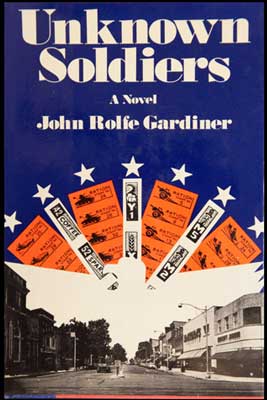
A novel set in northern Virginia recalls the World War II era through the eyes of a public school boy whose penchant for mischief leads him into serious trouble. With the reputation of an unpatriotic miscreant, the terror and hero of his school yard, he becomes a one-man underground in his village; mute in patriotic recitations, joy riding with stolen gas coupons, and in the throes of first love, all the while leading the citizenry toward discovery of a larger war-time fraud taking place under their noses.
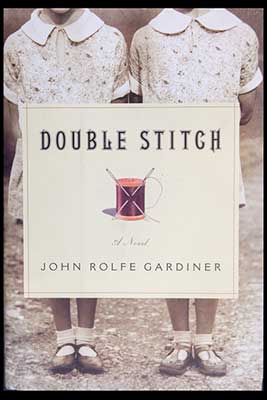
In 1926 ten-year old twin girls, copper-skinned, perfectly matched, and impish, arrive at the Carson Valley orphanage, outside Philadelphia, designed as a fantasy village, chartered for white, parentless girls only. The twins’ wit and mischief are both a delight and trial to the director, modeled on the actual director of the orphanage, Elsa Ueland, a leader in the progressive education movement. Shaken by the discovery that they may have a black grandmother, the twins struggle for separate identities though pulled ever tighter by their genetic bond. It’s warned by one of the era’s leading therapists, Otto Rank, that one might destroy the other. Before their stories are told the twins travel in far different but equally perilous directions.
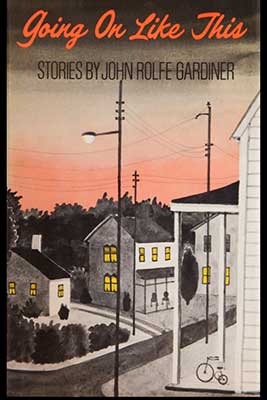
Most from the pages of the New Yorker, the stories in Going On Like take place in a series of concentric rings moving outward from the center, never seen, Washington, D.C. First, Beltway tales of children growing up where pavement has replaced farmland and the shopping mall is the habitat of young love. Then Village tales in which a small community’s tolerance for eccentricity is tested. On to Town and Near Country where such eccentricity. On to Town and Near Country where the locale may induce paranoia and a discovery that the anxiety may be well founded.
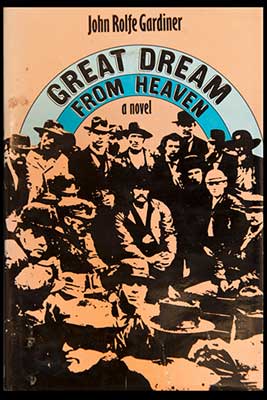
In the late 19th Century Tennessee began leasing its convicts to a New York coal company operating on the Cumberland Mountain. Stockades were built for the prisoners, and free miners were pushed out of work. Great Dream From Heaven is the story of Eugene Daniels, a labor organizer sent to the the region by the Knights of Labor with little to recommend him but ideals of fair play. Called a godless anarchist, a fancytalking dreamer, and dangerous anarchist, Daniels eventually found refuge in the cabin of a local jezebel while recruiting a force of rebellious miners. His labor-army burned down the prison stockades and chased the convict miners across the mountains. Tennessee responded with its own militia in this forgotten episode in American labor history.